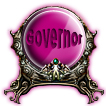By continuing you agree to eChinacities's Privacy Policy .
 Sign up with Google
Sign up with Google
 Sign up with Facebook
Sign up with Facebook
Q: Did people actually use 'I Ching' for divination in ancient China?
I would say they did, because it has survived at least 3,000 years, but remember I was not there to count followers.
Maybe for the benefit of others here, lets talk a bit of what "I Ching" is:
The I Ching is utterly unlike the Old and New Testaments of the Bible. It tells no stories, and its text is oracular, a highly metaphorical kind of poetry that is decipherable to Westerners and most Chinese only through the detailed commentaries of both Chinese age-scholars and Western translator-interpreters. The best known translation and commentary on the I Ching by a Westerner is the one made by Richard Wilhelm, a German scholar who lived in China during the first part of the twentieth century.
The I Ching is neither scripture nor a literary work, nor even a work of rationally coherent philosophy. It is, in fact, a three-thousand-year-old book of divination—a fact even more difficult for scientifically minded Westerners to square with traditional ideas about religious texts. When my friends say, "The I Ching is my bible", however, they are indicating that the I Ching provides them not with predictions of the future, but with religious ideas or sensibilities in a way that replaces the Bible.
The initial attraction to the I Ching involved its use as a contact with the spiritual world. You throw the coins, they symbolize lines, and you look up the arrangement of lines in the book, then read the commentary, which supposedly answers your question. Pure superstition. Except that people discovered that things were happening in the I Ching that were not happening, or happening far less satisfactorily, in other kinds of divination. One thing was, amazingly, that the answers were right.
Apparently - yes! When is 'ancient China' for you, though? Around 2000 years ago - then yes, it was used as a form of divination - but mostly for the illiterate peoples.
I think you'll find that the concept of divination was around long long long before the I Ching (or any other currently recognisable 'religion', and the I Ching came about through 'researching' the universe as they knew it - and hence, a set of prinicples was devised. So, in this way, the two can't really be overly separated so easily - divination and universal prinicples. The principles guide the divination, and the divination lends credence to the principles (yeah, I know, circular!)
Shining_brow:
Kchur.... again???














